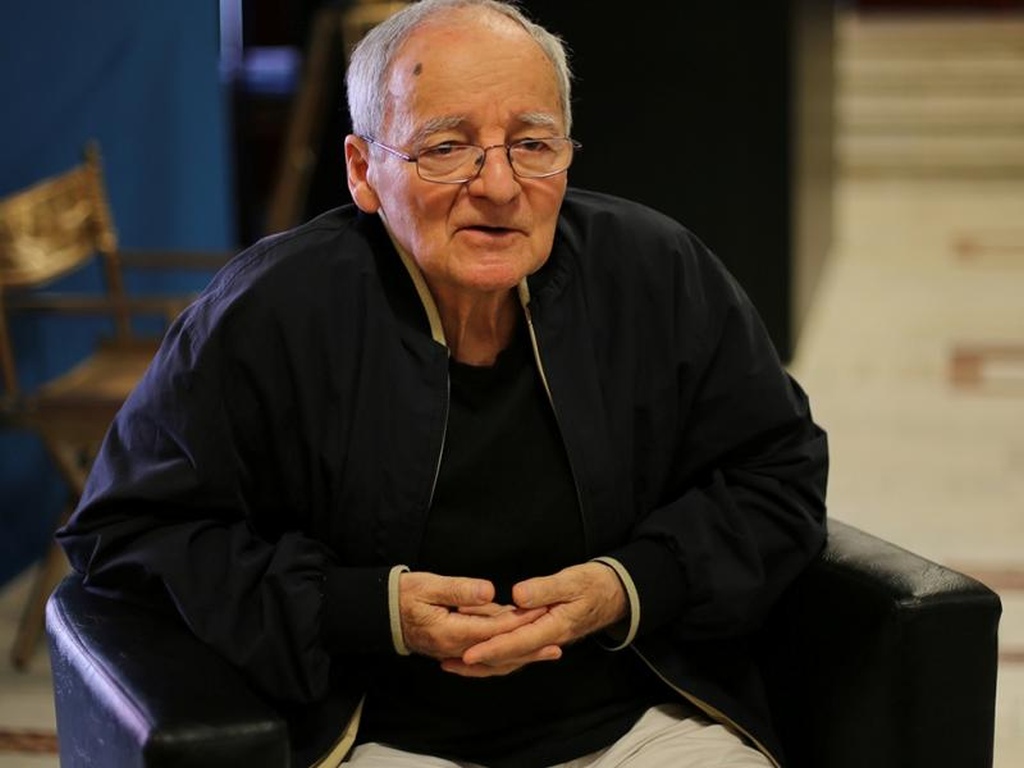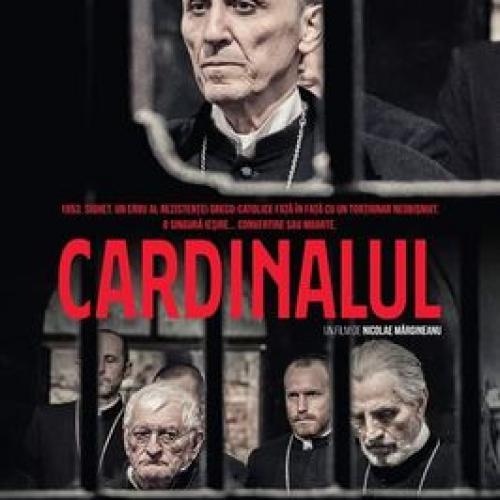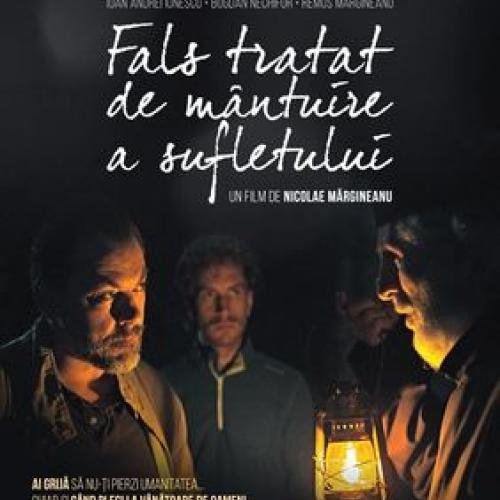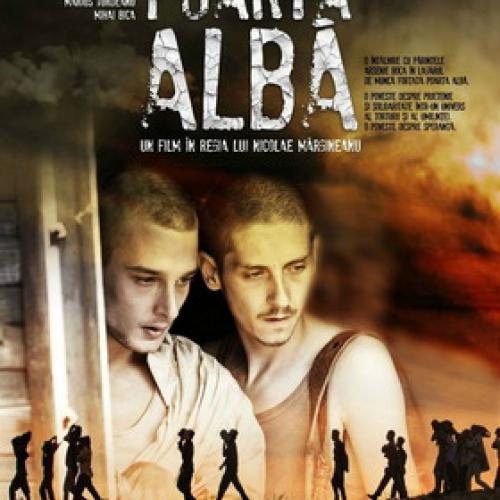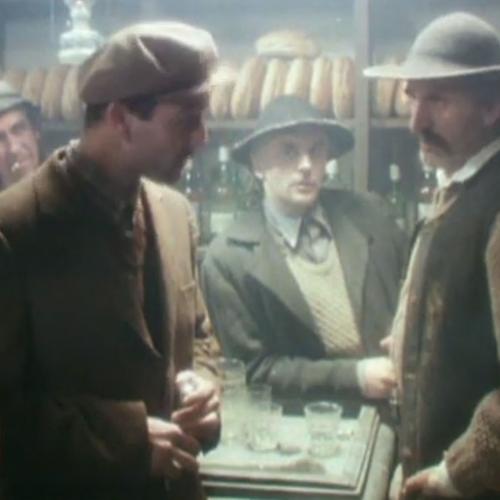Director, screenwriter and film producer, he was born in Cluj-Napoca, on September 25, 1938. He graduated from the “Ion Luca Caragiale” Theater and Cinematography Institute in Bucharest, the Imagine Department, in 1969. After 1989, Nicolae Mărgineanu produced a series of films and documentaries about those who suffered in communist prisons.
The first films she directed were: “Mai presus de orice” (1978), in collaboration with Dan Piţa (and screenwriter, in collaboration with Dan Piţa, Iosif Demian, Dan Mutaşcu); “A man in loden” (and screenwriter, in collaboration with Haralamb Zincă, 1978), ACIN award 1979; “Ştefan Luchian” (and screenwriter, in collaboration with Iosif Naghiu, 1981); “Return from Hell” (also screenwriter, in collaboration with Petre Sălcudeanu, 1983). The biographical film “Ştefan Luchia” (1981), starring Ion Caramitru, George Constantin and Maria Ploae, received the CIDALC award at the Karlovy Vary International Film Festival in 1982. In 1986 he directed the film “Pădureanca”, inspired by the novel of the same name by the writer Ioan Slavici and in which the main roles are held by the actors Manuela Hărăbor and Dorel Vişan. The film “Pădureanca” brought director Nicolae Mărgineanu the director's prize at the Costineşti National Film Festival in 1987.
The films “Flăcări pe comori” (1987) and “Un bulgăre de humă” followed (for which Nicolae Mărgineanu signed the script in collaboration with Mircea Radu Iacoban). The film “Un bulgăre de humă” was made in 1989, the year of the centenary of the death of Mihai Eminescu, the poet Veronica Micle and the writer Ion Creangă. After 1989, there followed the films “Undeva în Est” (1990), for which he also signed the script, in collaboration with Augustin Buzura, and “Priveşte înainte cu mânie” (1992). For the film “Undeva în Est” he won the Romanian Filmmakers' Union (UCIN) award in 1991, for the screenplay.
The documentary “Enescu – la răspântie de vremi”, directed by Nicolae Mărgineanu and scripted by Ada Brumaru, presents the life and work of George Enescu, from the period of his studies in Vienna (1888-1894) until his exile in Paris , with the establishment of the communist dictatorship in Romania. The film won the Jora Foundation award (1996) and the UCIN award for directing and editing (1996) and was made with the support of the “George Enescu” National Museum in Bucharest and the “George Enescu” International Society.
The documentary “Enescu – la răspântie de vremi”, directed by Nicolae Mărgineanu and scripted by Ada Brumaru, presents the life and work of George Enescu, from the period of his studies in Vienna (1888-1894) until his exile in Paris , with the establishment of the communist dictatorship in Romania. The film won the Jora Foundation award (1996) and the UCIN award for directing and editing (1996) and was made with the support of the “George Enescu” National Museum in Bucharest and the “George Enescu” International Society.
In 1999, he made the film “Faimosul paparazzo”, with the actors Marcel Iureş and Maria Ploae in the main roles, for which he received a UCIN award in 2000, namely the Special Jury Award.
Another film directed by Nicolae Mărgineanu is “Binecuvântată fii închisoare”, released in 2002. The action of the film, adaptation of the autobiographical writing “Bénie sois-tu, prison” by Nicole Valéry-Grossu, takes place in the atmosphere Stalinist of the late 1940s and early 1950s. The film “Binecuvântată fii închisoare (Blessed be you, prison)” was awarded with national and international awards, such as the Award for the best artistic contribution and the Special Mention of the Ecumenical Jury at the World Film Festival - Montreal 2003, or the Female Interpretation Award awarded by the Union of Cinematographers of Romania ( 2003).
In 2007, the film “Logodnicii din America” was released, based on a script written by Eva Sîrbu, and in 2008, the premiere of the film “Schimb valutar”, based on a script signed by Tudor Voican, took place. From the series of documentary films about the martyrs of communist prisons, directed by Nicolae Mărgineanu, we mention: “Demascarea” (2011), a 70-minute documentary about the “Pitesti phenomenon”, based on a script written by Alin Mureşan, which is based on the accounts to some survivors of prisons from the communist period; “Patru feluri de a muri” (2011), based on a script signed by Marius Oprea; “Supravegheat de Securitate în anii '70-'80”; “Arhitectura şi puterea”; “Poarta Albă”; “George Manu, Rectorul din Zarca Aiudului'”.
In 2013 he produced the documentary film “ Părintele Arsenie Boca în duh şi adevăr”, followed in 2016 by “Întâlniri cu un sfânt: Părintele Arsenie Boca”. In 2018, he directed the film “Fals tratat de mântuire a sufletului”, whose script is signed by Bogdan Adrian Toma. He also directed the film “Cardinalul”, whose premiere took place in November 2019. The film, made in black and white and color, presents part of the life of Cardinal Iuliu Hossu, emphasizing the moment when the united Romanian bishop proclaimed The Great Union on the plateau of Alba Iulia, on December 1, 1918, followed by aspects from the period of detention at Sighet Penitentiary.
In 2014, at the eighth edition of the Gopo Awards Gala, director Nicolae Mărgineanu was awarded the Lifetime Achievement Award. At the 47th edition of the UCIN Awards Gala, which took place on May 27, 2019, director Nicolae Mărgineanu was among those who were awarded the UCIN Academic Awards. In December 2019, during the Romanian Academy awards ceremony for the most representative scientific and cultural creations made in 2017, the film “Fals tratat de mîntuire a sufletului (False treatise on the salvation of the soul)”, directed by Nicolae Mărgineanu, received the “Aristizza Romanescu” Award.
